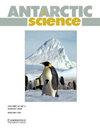国际法、气候变化和南极条约体系:针对日益严峻的挑战重新思考治理问题
IF 2
4区 地球科学
Q3 ENVIRONMENTAL SCIENCES
引用次数: 0
摘要
《南极条约》于1961年生效60多年来,正面临着重大挑战。这些挑战也影响到被称为《南极条约系统》的相关文书。这些主要是来自南极区域以外的外部动态,对ATS构成越来越大的挑战。它们包括与全球法律制度有关的一系列问题,以及它们在多大程度上适用于南极。气候变化似乎是这些挑战中最重要的,因为全球变暖对地球的切实影响以及各国对其紧迫性和严重性的认识促使ATS面临更多挑战。在南极不断被科学揭示的物理变化正在全球范围内显示出严重的影响,这一事实强调了在南极治理话语中更广泛和更迅速的国际参与的必要性。然而,现有的决策机制加上ATS内部由于外部因素而产生的敌对气氛,本身已成为挑战。这些挑战要求我们重新考虑和重新评估南极的一般法律制度,特别是ATS的法律制度,以便为在其他方面具有历史效力的国际法律制度找到前进的道路。本文利用科学和法律的视角,强调迫切需要在ATS总体上,特别是南极条约协商会议与联合国气候变化框架公约和政府间气候变化专门委员会制度之间实现更好的沟通,并克服阻碍实现这一目标的多重障碍。本文章由计算机程序翻译,如有差异,请以英文原文为准。
International law, climate change and the Antarctic Treaty System: re-contemplating governance questions apropos of the mounting challenges
Abstract More than 60 years since it entered into force in 1961, the Antarctic Treaty is experiencing significant challenges. These challenges also affect its associated instruments known as the Antarctic Treaty System (ATS). These are mostly external dynamics that are increasingly challenging the ATS from outside of the Antarctic region. They encompass a spectrum of issues relating to global legal regimes and to what extent they are applicable in the Antarctic context. Climate change appears to be the most significant of these challenges, as the tangible planetary impacts of global warming and the perception of its urgency and seriousness by states have prompted additional challenges to the ATS. The physical changes that continue to be scientifically unveiled in the Antarctic are manifesting severe impacts on a planetary scale, and this fact has underscored the need for broader and more rapid international engagement within the Antarctic governance discourse. Nevertheless, the existing decision-making mechanisms compounded by the adversarial atmosphere within the ATS due to external factors have become challenges of themselves. Such challenges call for the re-contemplation and reassessment of the legal regime of the Antarctic in general, and the ATS in particular, to find ways forward for an otherwise historically effective international legal system. This paper utilizes both scientific and legal lenses to underscore the urgent need to achieve better communication between the ATS generally, the Antarctic Treaty Consultative Meetings specifically and the UN Framework Convention on Climate Change and Intergovernmental Panel on Climate Change regimes and to overcome the multiple barriers that stand in the way of achieving that objective.
求助全文
通过发布文献求助,成功后即可免费获取论文全文。
去求助
来源期刊

Antarctic Science
地学-地球科学综合
CiteScore
3.60
自引率
6.20%
发文量
42
审稿时长
3 months
期刊介绍:
Antarctic Science provides a truly international forum for the broad spread of studies that increasingly characterise scientific research in the Antarctic. Whilst emphasising interdisciplinary work, the journal publishes papers from environmental management to biodiversity, from volcanoes to icebergs, and from oceanography to the upper atmosphere. No other journal covers such a wide range of Antarctic scientific studies. The journal attracts papers from all countries currently undertaking Antarctic research. It publishes both review and data papers with no limits on length, two-page short notes on technical developments and recent discoveries, and book reviews. These, together with an editorial discussing broader aspects of science, provide a rich and varied mixture of items to interest researchers in all areas of science. There are no page charges, or charges for colour, to authors publishing in the Journal. One issue each year is normally devoted to a specific theme or papers from a major meeting.
 求助内容:
求助内容: 应助结果提醒方式:
应助结果提醒方式:


